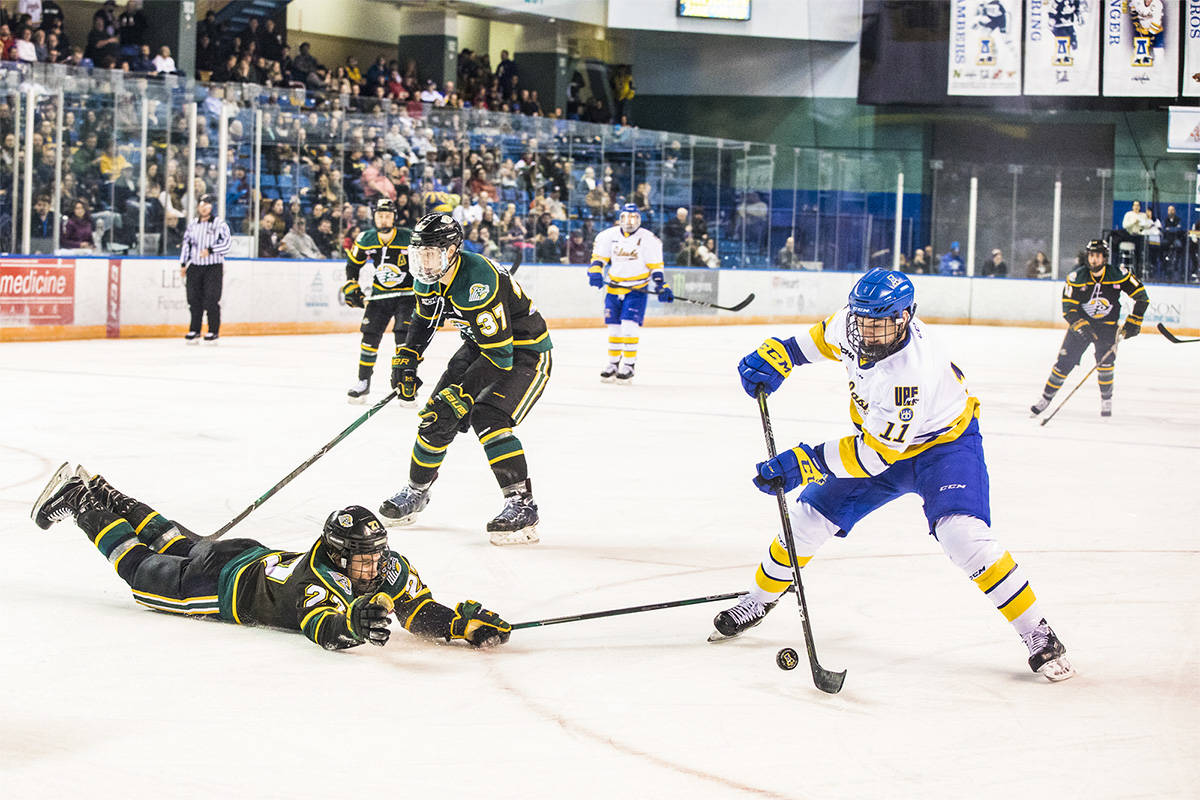UAA’s decision to end four athletics programs is heartbreaking. First and foremost, we recognize the effect this has on our community, UAA staff and faculty, and most of all, UAA’s student-athletes. Although this is painful, it is still the right thing to do.
We are longtime supporters and donors of UAA Athletics, and we support Chancellor Sandeen’s recommendation to the Board of Regents. Our families have supported athletics at UAA for generations, and we understand that a new fiscal reality means difficult decisions need to be made for the future of the university. When faced with tough choices, we must choose long-term sustainability.
Though rooted in tradition, a university is, by nature, an evolving entity. Things can’t always stay the same. Its students change, information and the way education is delivered changes, and outside forces change as well. Inherent in the mission of public universities is responsiveness to community needs.
Since 2014, UAA’s state funding has declined by over $34 million, and the university has had to adapt. This has forced UAA leadership to make difficult decisions about which academic programs can be sustained long term. The recent decisions about athletics come on the heels of the Board of Regents’ direction last fall to consolidate academic programs and administrative areas to meet budget reductions.
Throughout this change, UAA has committed to becoming more efficient and strengthening its focus to ensure long-term sustainability, while also meeting the state’s needs for education and workforce development. The latest recommendations reflect UAA Athletics’ participation in this process and represent a savings of about $2.5 million per year. UAA academics has already taken 38% of the total budget reduction for UAA, and now with these cuts UAA athletics will have taken a total of 11% of the total over the same time period. Yes, it is heartbreaking, and yes it must be done.
Affected programs include men’s hockey, women’s gymnastics, men’s skiing and women’s skiing. Approximately 55 student athletes are impacted, as well as seven coaches and two staff members. It will also be felt by the entire student body, and the community that supports these programs and people. The university also prioritized making this decision now, more than a year in advance of these changes going into effect, to allow those impacted, and their families, time to prepare for the future.
UAA Athletics has said it will assist student-athletes with scholarship information, academic advising, counseling options, and navigating the transfer process. UAA will also provide tuition scholarships for the 2021-22 academic year for scholarship student athletes directly impacted by these program eliminations who choose to remain at UAA to pursue their degrees.
We want to recognize and thank these student-athletes for their accomplishments and contributions to the university. These decisions do not discount our pride in the hard work they’ve put into their sports, their education and our community year after year.
The bottom line is that this restructuring reflects the reality of our resources, and COVID-19 has only exacerbated these gaps. Stanford University, Boise State University, University of Iowa, University of Connecticut, GNAC counterpart Seattle Pacific University and more have all made the difficult choice to eliminate or suspend athletics programs in 2020. After these changes, UAA will strive to be a competitive GNAC conference member.
Some students may decide to study elsewhere and UAA leadership does not take that notion lightly, but these cost savings will allow UAA to continue to provide the resources needed to offer top-level education and build a hometown workforce.
We have no doubt UAA Athletics’ remaining programs will continue to thrive with the support and backing of our community. We value a strong athletics program at UAA as much as anyone in this community, and we continue to be committed to supporting UAA through the challenges of today, and through its vision for the future. Though we may be smaller, we’ll be no less mighty.
Tom and Vicki Packer, Rick Nerland, Bobbi and Jim Olson are UAA Athletics donors and supporters.

